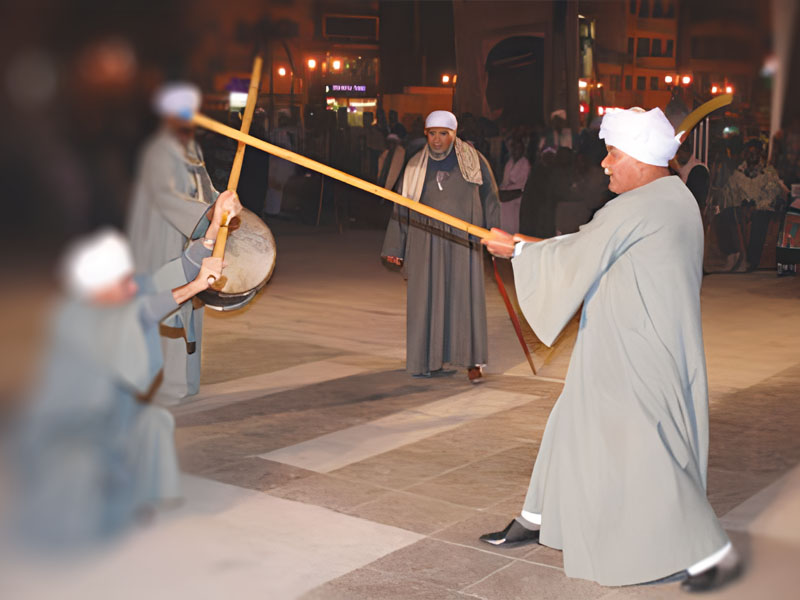Folk games in Egypt and the Arab world
Issue 19

Ashraf Said Nakhla (Egypt)
Traditional folk games are passed down through the generations. As their spontaneity appeals to children and they meet children’s psychomotor needs, folk games become an important part of children’s lives.

Whether it is directed or not, play is designed to offer fun and entertainment, and adults use play to develop their children’s personalities and behaviours. Traditional games are played in the open in alleys, public squares, fields, schoolyards and, unfortunately, in the street.
The games are self-regulated, and subject to conditions and rules that the players adhere to within an implicit ethical contract.
Why should we pay attention to folk games? Currently, there are many electronic games available. Shops sell rifles, pistols, daggers, swords and laser games that are harmful to children's eyes. Nowadays, games manufacturers advertise useless, expensive games in a variety of ways; they use the latest technology and research to understand children, and they produce a constant stream of new products targeted at children without taking into consideration whether these products are good for children.
We should return to our heritage to replace games that encourage violence and that cause harm to our children; it is also our duty to pay attention to our heritage and to preserve folk games.
Classification of folk games
Egypt’s National Archive of Folklore collected and recorded folk games using Dr. Hossam Muhsib’s system of classification, which is based on the type of the game and not the game’s function. Games are classified as follows:
Games for specific occasions
Competitive games
Guessing games and games which involve drawing lots
Hunting games
Paper-based games
Gambling games
Physical skills games
Water games
Cradle games
Imitation games
Singing games
Folk games may vary in type, by age group of the players or by educational and social functions, but they are all fun and entertaining for children.







































































